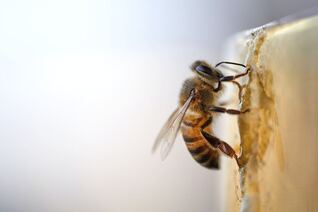Insect Allergies

What is an Insect Allergy?
When most people get stung by an insect, it itches, gets red, and swells a little at the sting site.
However, if you are allergic to insect venom, our body's immune system will react much more strongly, causing a severe reaction, in some it is even life-threatening. The life threatening reaction is called anaphylaxis.
Symptoms of a Severe Insect Reaction
- Itching and Hives
- Swelling in the throat or tongue
- Difficulty breathing
- Stomach Cramps
- Nausea or Diarrhea
- In very severe cases a fall in blood pressure can result in the body going into shock and loss of consciousness.
If you have any of these symptoms after an insect sting, get medical treatment. Once you receive treatment make an appointment with us. We can diagnose your allergy and determine the best form of continued care and treatment for your allergy.
Some Common Stinging Insects Are
- Yellow Jackets
- Honeybees and Bumble Bees
- Wasps
- White Faced Hornet
- Yellow Faced Hornet
Insect Allergy Treatments
Epi Pen and emergency plan
In many cases, allergy shots (or immunotherapy) are effective in treating an insect allergy.
Some Ways to Avoid Insect Stings
- Avoid walking barefoot in the grass
- Do not drink from open beverage cans
- Keep food covered at all times when eating outdoors
- Garbage cans stored outside should be covered with tight-fitting lids
- Avoid sweet-smelling perfumes, hair sprays, colognes, and deodorants
- Avoid bright colored clothing
- Keep window and door screens in good repair.
- Drive with the car window closed
*Venom testing is a specialized test that is typically scheduled after your initial visit
